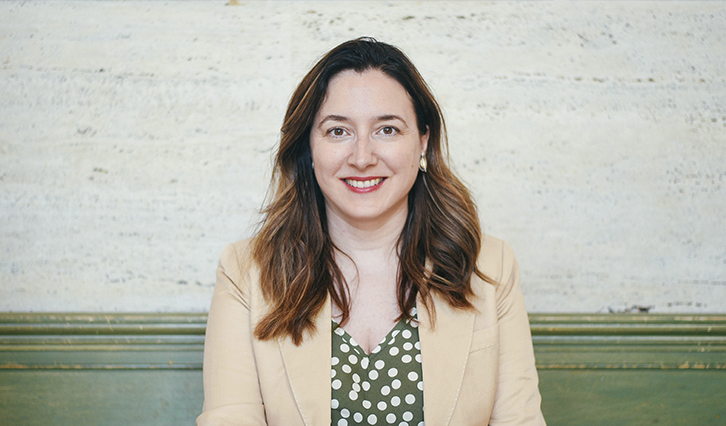précis Spotlight: Mihaela Papa


What is your role at CIS?
I serve as director of research and principal research scientist at CIS, a role that bridges management and scholarship. I oversee grant and fellowship programs, spearhead new research initiatives, build research communities across our Center's area programs and MIT schools, and mentor the next generation of scholars. My academic expertise is in international relations, and I publish on global governance and sustainable development, particularly through my new BRICS Lab.
In your first full year at CIS, what are the new research initiatives that you’ve helped develop?
This past year, I focused on building collaborative platforms that highlight CIS’s role as an interdisciplinary hub and expand its research reach. Evan Lieberman and I launched the CIS Global Research & Policy Seminar series to address current challenges in global development and governance, foster cross-disciplinary dialogue, and connect theoretical insights to policy solutions. We also convened a Climate Adaptation Workshop, which examined promising strategies for financing adaptation and advancing policy innovation. We documented the outcomes in a workshop report that outlines a broader research agenda contributing to MIT’s larger climate mission.
In parallel, I have been reviewing CIS’s grant-making programs to improve how we serve our community, while also supporting regional initiatives such as research planning related to Ukraine. Together with MIT-Brazil faculty director Brad Olsen, I secured a MITHIC Connectivity grant to build an MIT Amazonia research community that connects MIT scholars with regional partners and strengthens collaboration across the Amazon. Finally, I launched the BRICS Lab to analyze transformations in global governance and have ongoing research on BRICS and food security and data centers in BRICS.
Tell us more about the new BRICS Lab.
The BRICS countries comprise the majority of the world’s population and an expanding share of the global economy. As a group, they carry the collective weight to shape international rules, influence global markets, and redefine norms—yet the question remains: will they use this power effectively? The BRICS Lab explores the implications of the bloc’s rise for international cooperation and its role in reshaping global politics. Our work focuses on three areas: the design and strategic use of informal groups like BRICS in world affairs; the coalition’s potential to address major challenges such as food security, climate change, and artificial intelligence; and the implications of U.S. policy toward BRICS for the future of multilateralism.
What are the Center’s biggest research priorities right now?
Our Center was founded in response to rising geopolitical tensions and the urgent need for policy rooted in rigorous, evidence-based research. Since then, we have grown into a hub that combines interdisciplinary scholarship and actively engages with policymakers and the public. Today, as in our early years, the Center brings together exceptional researchers with the ambition to address the world’s most pressing challenges in new and creative ways.
Our core focus spans security, development, and human dignity. Security studies have been a priority for the Center, and our new nuclear security programming advances this work while training the next generation of scholars in this critical field. On the development front, our work has explored how societies manage diverse populations, navigate international migration, as well as engage with human rights and the changing patterns of regime dynamics.
We are pursuing new research in three areas. First, on climate change, we seek to understand how societies confront environmental risks and harms, from insurance to water and food security in the international context. Second, we examine shifting patterns of global governance as rising powers set new agendas and take on greater responsibilities in the international system. Finally, we are initiating research on the impact of AI—how it reshapes governance across international relations, what is the role of AI corporations, and how AI-related risks can be managed.
As we approach our 75th anniversary in 2026, we are excited to bring researchers together to spark bold ideas that open new possibilities for the future.
Photo of Mihaela Papa is courtesy of Megha Hegde.